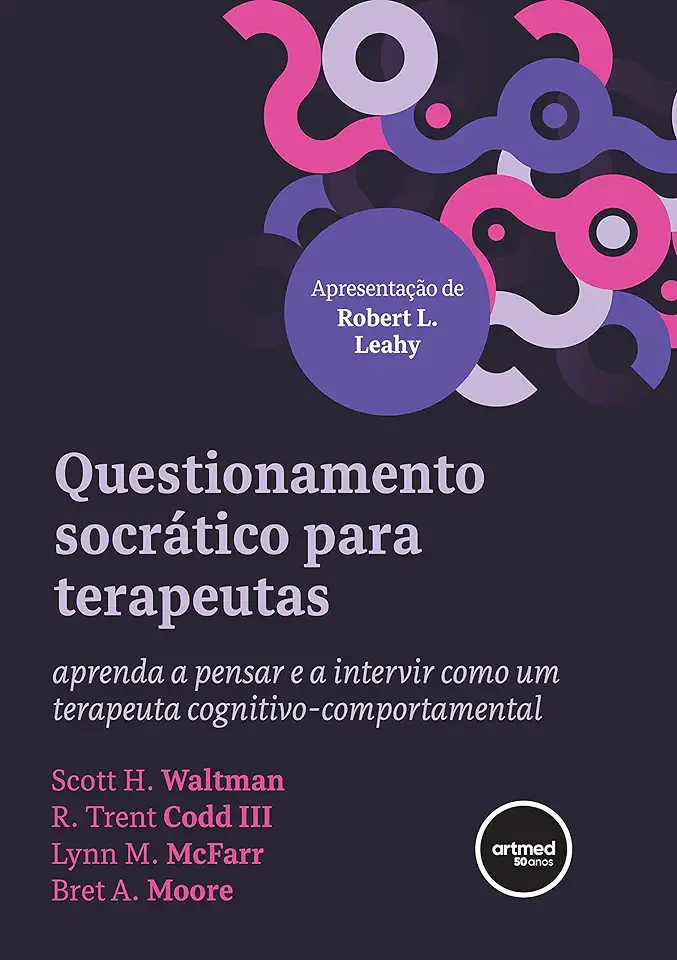
Socratic Questioning for Therapists - Scott H. Waltman;R.Trent Codd
Socratic Questioning for Therapists: A Powerful Tool for Enhancing Client Outcomes
Introduction
In the realm of psychotherapy, the Socratic method stands as a time-honored approach that empowers clients to delve deep into their inner selves, explore their thoughts and emotions, and ultimately discover their own solutions to life's challenges. Drawing inspiration from the ancient Greek philosopher Socrates, this book, "Socratic Questioning for Therapists" by Scott H. Waltman and R. Trent Codd, offers a comprehensive guide to harnessing the power of Socratic questioning in therapeutic practice.
Unlocking the Potential of Socratic Questioning
Socratic questioning is not merely a technique; it's an art form that requires skill, practice, and a genuine desire to understand the client's perspective. Through a series of carefully crafted questions, therapists can gently guide clients towards self-discovery, helping them uncover hidden beliefs, challenge limiting assumptions, and gain a deeper understanding of their own experiences.
Key Features of Socratic Questioning
Open-Ended Inquiries: Socratic questions are open-ended, inviting clients to explore their thoughts and feelings without feeling constrained by predetermined answers. This encourages a free flow of ideas and promotes a sense of curiosity and self-exploration.
Non-Judgmental Approach: The Socratic method emphasizes a non-judgmental stance, creating a safe space for clients to express themselves without fear of criticism or evaluation. This fosters trust and rapport, allowing clients to feel comfortable sharing their innermost thoughts and concerns.
Promoting Self-Awareness: Socratic questioning helps clients develop a deeper understanding of their own thoughts, feelings, and behaviors. By reflecting on their responses, clients gain insights into their patterns, motivations, and the underlying factors shaping their experiences.
Empowering Clients: Socratic questioning empowers clients to take an active role in their therapy, fostering a sense of self-efficacy and self-determination. Clients become active participants in their own healing process, rather than passive recipients of advice or solutions.
Applications in Psychotherapy
The versatility of Socratic questioning makes it applicable to a wide range of therapeutic approaches, including:
Cognitive-Behavioral Therapy (CBT): Socratic questioning can help clients identify and challenge negative thought patterns, leading to more adaptive and healthier behaviors.
Psychodynamic Therapy: By exploring unconscious beliefs and motivations, Socratic questioning facilitates deeper self-understanding and emotional healing.
Humanistic Therapy: Socratic questioning aligns perfectly with the humanistic approach, promoting self-actualization and personal growth through self-exploration.
Solution-Focused Therapy: Socratic questioning assists clients in identifying their strengths and resources, empowering them to find solutions to their problems.
Mastering the Art of Socratic Questioning
"Socratic Questioning for Therapists" provides a wealth of practical guidance to help therapists master the art of Socratic questioning. Readers will discover:
Effective Questioning Techniques: Learn how to craft open-ended questions that stimulate thought, encourage self-reflection, and promote deeper exploration.
Overcoming Resistance: Explore strategies for handling resistance and maintaining a collaborative therapeutic relationship, even when clients are reluctant to engage in self-examination.
Case Studies and Examples: Gain valuable insights through real-life case studies and examples that illustrate the power of Socratic questioning in various therapeutic settings.
Ethical Considerations: Understand the ethical implications of Socratic questioning and how to ensure that it is practiced in a responsible and client-centered manner.
Conclusion
"Socratic Questioning for Therapists" is an indispensable resource for mental health professionals seeking to enhance their therapeutic skills and empower their clients. By embracing the Socratic method, therapists can unlock the potential for transformative change, helping clients embark on a journey of self-discovery, healing, and personal growth. Invest in this book and elevate your therapeutic practice to new heights.